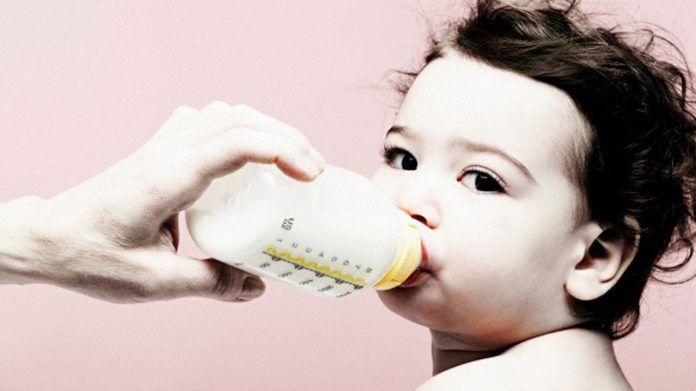Why you should think twice about buying breast milk off the Internet

Breast milk often goes by another name: liquid gold. Human milk uniquely provides a baby with the right nutrients and antibodies.
Yet the growing pressure to breastfeed, the backlash against formula, and the idea that breast milk is a pure substance have created a market for unregulated Internet sales experts say is dangerous — even deadly.
In a editorial published Tuesday in The BMJ, researchers point to studies showing that human milk purchased online may carry diseases such as syphilis and hepatitis B and C. Samples were also frequently contaminated with bacteria and fecal matter, and occasionally substances like illicit drugs and the chemical Bisphenol A.
Sarah Steele, co-author of the editorial and a lecturer at Barts and the London School of Medicine and Dentistry, says the online marketplaces in the Unites States and United Kingdom often feel like intimate communities for mothers helping each other out.
“It’s a digital environment creating this supposed environment of trust,” she tells Mashable. “People aren’t exercising the same skeptical judgment they might [otherwise].”
Online marketplaces for breast milk are not regulated by the Food and Drug Administration. Users advertise themselves touting their high-quality, abundant milk supply, typically for mothers who cannot breast feed.

Image: OnlytheBreast.com
While hospitals and regulated milk banks provide mothers with lab-screened and pasteurized donor milk, that milk is both expensive, up to $4 per ounce, and is often prioritized for premature infants and babies with medical conditions.
On the Internet, mothers can buy breast milk for as little as $1.50 an ounce from women who say they eat healthy, don’t smoke and have thriving children. Some even offer lab results to prove their milk is safe.

Image: OnlytheBreast.com
What prospective buyers forget, says Steele, is that human milk is like any other bodily fluid: It can transmit diseases.
A 2013 study comparing milk obtained from a licensed bank to milk purchased online found that 21% of the Internet samples tested positive for cytomegalovirus, a common virus that can be dangerous for those with weakened immune systems, including newborns. Only 5% of the bank samples tested positive.
Human milk is also highly perishable. In one study, nearly every sample of milk purchased online had detectable bacterial growth. This is because the milk wasn’t pasteurized, but is also due to inadequate shipping and storage conditions. Packages of breast milk frequently arrived damaged or defrosted, according to another study.
The authors caution not only mothers in search of breast milk, but also a growing number of health and fitness enthusiasts who believe human milk provides a kind of optimal nutrition for immunity and muscle building.
“The science isn’t behind this,” says Steele, adding that adults who consume unscreened breast milk for health purposes are in fact potentially exposing themselves to bacteria and disease.
Steele says she and her co-authors wrote the editorial as a “call to action” to impose strict regulation, and for health care professionals who counsel new mothers and caregivers.
While it’s important to emphasize the “superiority” of breastfeeding, says Steele, health care workers must also acknowledge that not everyone will be able to provide their infants breast milk. They should help those patients explore safe options — without feeling guilty.
Otherwise, new parents may turn to the online marketplace for human milk.
“It sounds pretty good as an alternative,” she says. “But the dangers became immediately apparent.”
Have something to add to this story? Share it in the comments.
